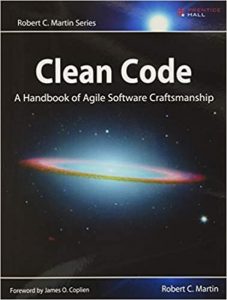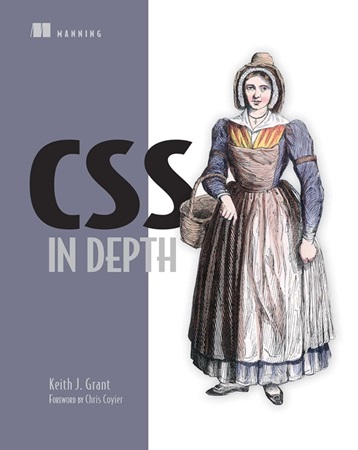To excel in software engineering, having the right resources is crucial. Whether you’re an experienced developer or a beginner in coding, proper guidance can significantly impact your progress.
In this blog post, we’ve compiled a list of top software engineering books that should be part of every developer’s collection. Covering both timeless principles and the latest practices, these books offer a comprehensive guide. Let’s explore these must-reads that will contribute to your growth as a skilled software engineer.
Best Software Engineering Books 2024
| Best Software Engineering Books | Author | Buy Now |
|---|---|---|
| A Handbook of Agile Software Craftsmanship | Robert C. Martin | Check On Amazon |
| The Pragmatic Programmer: From Journeyman to Master | Andrew Hunt and David Thomas | Check On Amazon |
| Design Patterns: Elements of Reusable Object-Oriented Software | Erich Gamma, Richard Helm, Ralph Johnson, John Vlissides | Check On Amazon |
| The Mythical Man-Month: Essays on Software Engineering | Frederick P. Brooks Jr. | Check On Amazon |
| Code Complete: A Practical Handbook of Software Construction | Steve McConnell | Check On Amazon |
| Head First Design Patterns | Eric Freeman and Elisabeth Robson | Check On Amazon |
| The Clean Coder: A Code of Conduct for Professional Programmers | Robert C. Martin | Check On Amazon |
| CSS in Depth | KEITH J. GRANT | Check On Amazon |
| Don't Make Me Think: A Common Sense Approach to Web Usability | Steve Krug | Check On Amazon |
| Introduction to Algorithms 4th Edition | Thomas H. Cormen, Charles E. Leiserson, Ronald L. Rivest, Clifford Stein | Check On Amazon |
Best Software Engineering Books: Reviews
1. Clean Code
A Handbook of Agile Software Craftsmanship by Robert C. Martin
Robert C. Martin, a renowned software expert, brings us “Clean Code,” a groundbreaking handbook that delves into the importance of writing clean and maintainable code. Martin, along with his colleagues from Object Mentor, provides a revolutionary paradigm for agile software craftsmanship.
Divided into three parts, the book covers principles, case studies, and a valuable list of heuristics and “smells.” Readers will come away with a deep understanding of good and bad code, the art of transforming bad code into good, and the essence of creating impeccable code structures.
Readers will come away from this book understanding:
- How to distinguish between good and bad code
- Techniques for writing and transforming code
- The principles of creating good names, functions, objects, and classes
2. The Pragmatic Programmer
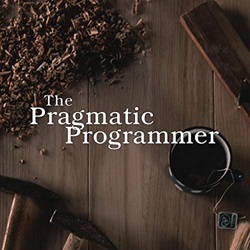
“The Pragmatic Programmer” by Andrew Hunt and David Thomas is a timeless audiobook that transcends language, frameworks, and methodologies. Originally penned in 1999 and recently revised, this book covers personal responsibility, career development, and architectural techniques.
Whether you’re a novice or an experienced coder, the insights shared by Thomas and Hunt will empower you to enhance personal productivity, accuracy, and job satisfaction.
Readers will come away from this book understanding:
- The importance of personal responsibility in programming
- Strategies for continuous career development
- Architectural techniques for flexible and adaptable code
3. Design Patterns
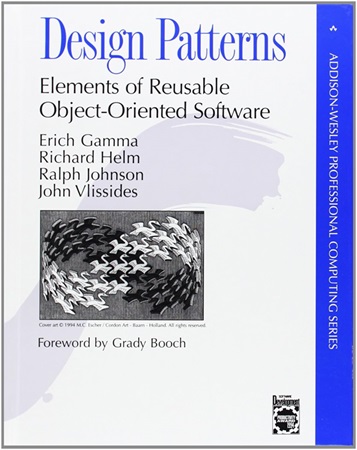
“Design Patterns” is a catalog of solutions to common design problems in object-oriented software. With 23 patterns explained systematically, this book equips designers with tools to create flexible and reusable designs.
The authors guide readers through the application of these patterns in the software development process, offering insights into when and how to use them effectively.
Readers will come away from this book understanding:
- The applicability of design patterns in different circumstances
- How to evaluate and choose patterns based on design constraints
- Real-world examples of patterns applied in object-oriented programming
4. The Mythical Man-Month

Frederick P. Brooks Jr.’s “The Mythical Man-Month” is a classic that offers a blend of software engineering facts and insightful opinions. Drawing from his experience managing projects for IBM, Brooks explores the unique management challenges of large programming projects.
The book’s enduring influence is evident in the added chapters, including a condensation of the original propositions, reflections a generation later, a reprint of the 1986 paper “No Silver Bullet,” and today’s thoughts on the prophecy of “No Silver Bullet within ten years.”
Readers will come away from this book understanding:
- The challenges specific to large programming projects
- The importance of conceptual integrity in software development
- Brooks’ views on the “No Silver Bullet” assertion and its relevance today
5. Code Complete
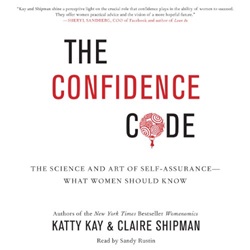
Considered one of the best practical guides to programming, Steve McConnell’s “Code Complete” has been a staple for over a decade. The updated edition incorporates leading-edge practices and hundreds of new code samples, providing developers with a comprehensive guide to software construction.
From design principles to debugging strategies, McConnell synthesizes effective techniques into clear, pragmatic guidance suitable for developers of all experience levels and project sizes.
Readers will come away from this book understanding:
- Techniques for designing for minimum complexity and maximum creativity
- The benefits of collaborative development and defensive programming
- Strategies for building quality into every phase of a project
6. Head First Design Patterns
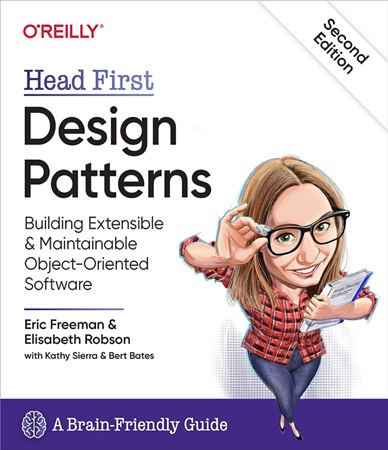
“Heads First Design Patterns” is a visually engaging book that teaches design principles and patterns in a way that aligns with the brain’s natural learning processes. Focused on the lessons learned by experienced designers, the book covers when to use design patterns, how to apply them, and the underlying object-oriented design principles.
The interactive format ensures that readers not only grasp the concepts but can also apply them to real-world software design challenges.
Readers will come away from this book understanding:
- The essential design patterns and when to use them
- How to apply design patterns to their own designs
- Object-oriented design principles underlying each pattern
7. The Clean Coder
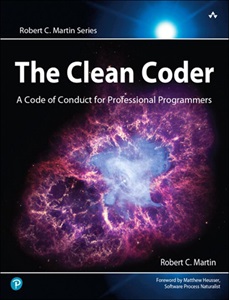
In “The Clean Coder,” Robert C. Martin takes a deep dive into the disciplines, techniques, tools, and practices of true software craftsmanship. Packed with practical advice, the book covers everything from coding and refactoring to dealing with pressure and making tough decisions.
Martin emphasizes the importance of approaching software development with honor, self-respect, and pride, providing insights that go beyond mere technique.
Readers will come away from this book understanding:
- What it means to behave as a true software craftsman
- Strategies for handling conflict, tight schedules, and pressure
- Techniques for managing time, avoiding burnout, and fostering thriving environments
8. CSS in Depth
“CSS in Depth” by Keith J. Grant is a comprehensive guide to CSS techniques that range from clever to mind-blowing. This book exposes readers to creative examples and powerful best practices, enhancing both technical skills and design sensibilities.
Covering topics such as avoiding common CSS pitfalls, mastering misunderstood concepts, and implementing responsive designs, Grant’s book is an invaluable resource for web designers and developers.
Readers will come away from this book understanding:
- Strategies for avoiding common CSS pitfalls
- Mastery of misunderstood CSS concepts
- Implementation of responsive designs for various devices
9. Don’t Make Me Think
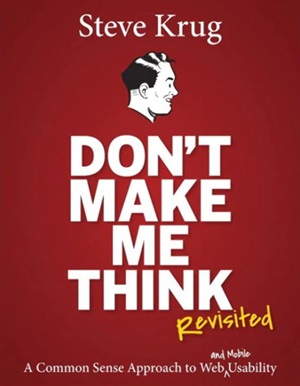
Steve Krug’s “Don’t Make Me Think” has been a cornerstone for web designers since its first publication in 2000. This common-sense guide explores the principles of intuitive navigation and information design.
Krug’s witty and practical approach, combined with updated examples and a new chapter on mobile usability, makes this book an essential read for anyone involved in web development.
Readers will come away from this book understanding:
- Principles of intuitive navigation and information design
- The importance of simplicity in web usability
- Strategies for creating user-friendly web interfaces
10. Introduction to Algorithms
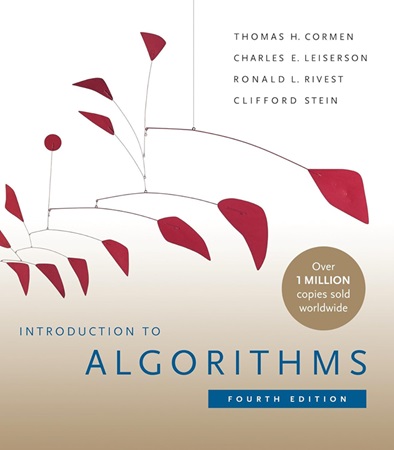
“Introduction to Algorithms” is a comprehensive update of the leading algorithms text. Covering a broad range of algorithms in-depth, this book makes design and analysis accessible to readers of all levels.
The fourth edition introduces new chapters on topics like matchings in bipartite graphs, online algorithms, and machine learning, making it a valuable reference for both academia and professionals.
Readers will come away from this book understanding:
- The design and analysis of a broad range of algorithms
- Applications of algorithms in various computational problems
- New developments in algorithmic techniques and approaches
Overview of Software Engineering Specializations
Software engineering is a wide-ranging field that includes different types of work. Here are some common types:
- System Software Engineering: Involves creating software that provides essential services to computer systems, like operating systems and device drivers.
- Application Software Engineering: Focuses on making software applications that meet specific user needs, ranging from word processors to complex business applications.
- Embedded Software Engineering: Deals with developing software embedded within hardware devices, like automotive systems or medical devices.
- Web Development: Concentrates on making applications for web browsers, including front-end (user interface) and back-end (server-side logic) development.
- Mobile App Development: Involves creating software specifically for mobile devices, with specializations in iOS, Android, or cross-platform development.
- Game Development: Focuses on creating interactive and entertaining software, including video games, with expertise in graphics, AI, or gameplay design.
- Data Science and Machine Learning Engineering: Involves developing software that analyzes large sets of data, including machine learning algorithms and predictive analytics.
- DevOps (Development and Operations): Combines software development and IT operations to improve collaboration and productivity, working on continuous integration and infrastructure automation.
- Quality Assurance (QA) and Testing: Ensures software quality through testing processes, with specialization in manual or automated testing.
- Security Engineering: Focuses on developing secure software systems and protecting them from vulnerabilities and cyber threats.
- Cloud Computing Engineering: Involves designing, developing, and maintaining software for cloud platforms like AWS, Azure, and Google Cloud.
- Network Programming: Concentrates on creating software for communication between computer systems, working on protocols, sockets, and distributed systems.
- Human-Computer Interaction (HCI): Focuses on creating user-friendly software, including user interface design and usability.
- Artificial Intelligence (AI) Engineering: Involves developing software that simulates intelligent behavior, working on machine learning algorithms and computer vision.
These are just a few examples, and the field of software engineering is always evolving with new specializations emerging. Many software engineers specialize in a combination of these areas based on their interests and career paths.
Conclusion
Incorporating these books into your learning journey will undoubtedly elevate your understanding of software engineering principles and practices. Each book offers unique insights, ensuring that whether you are a novice or an experienced coder, there is always room for growth and improvement in the dynamic world of software development. Happy coding!

